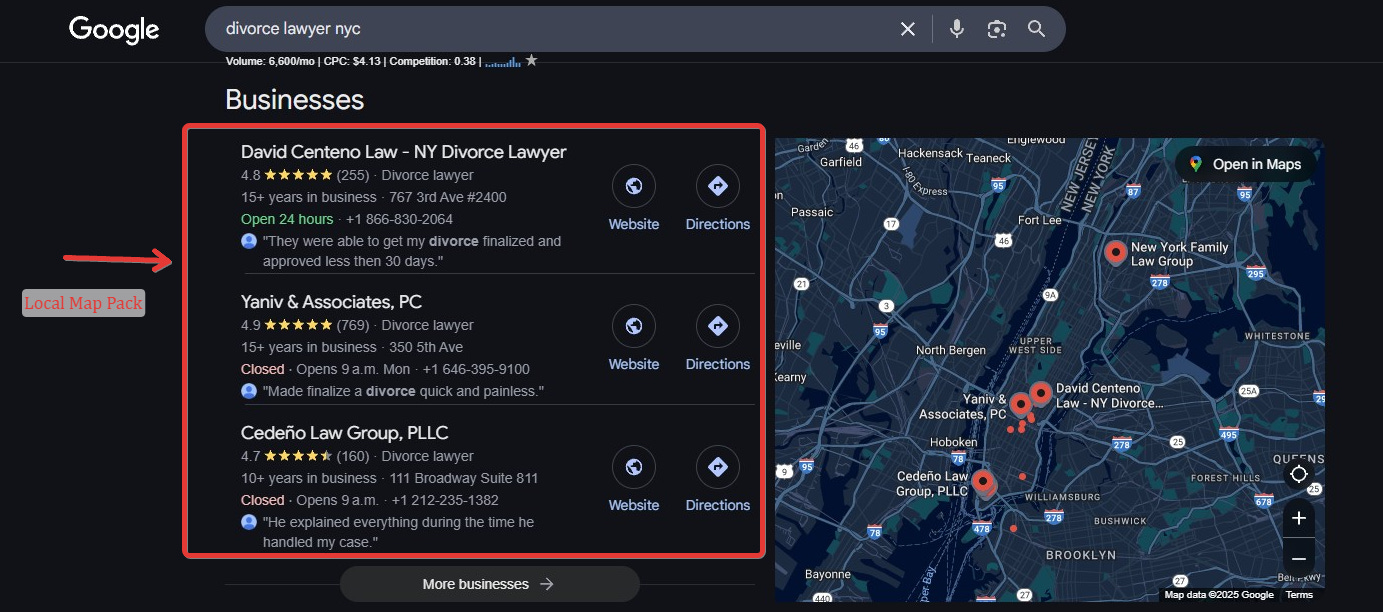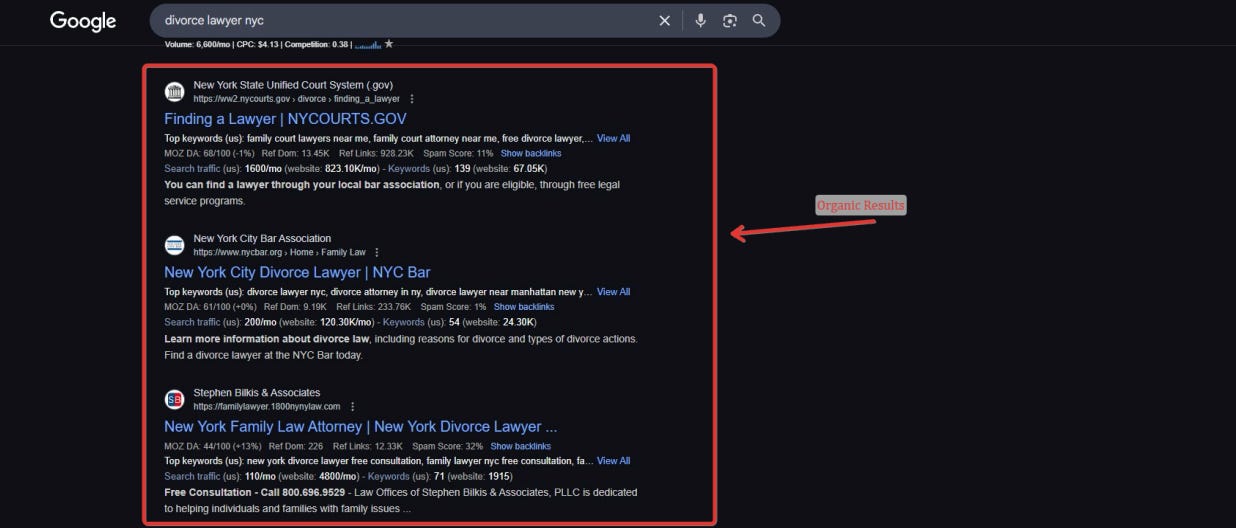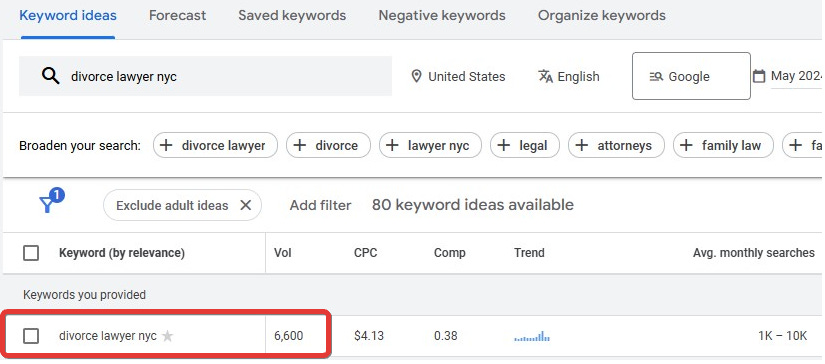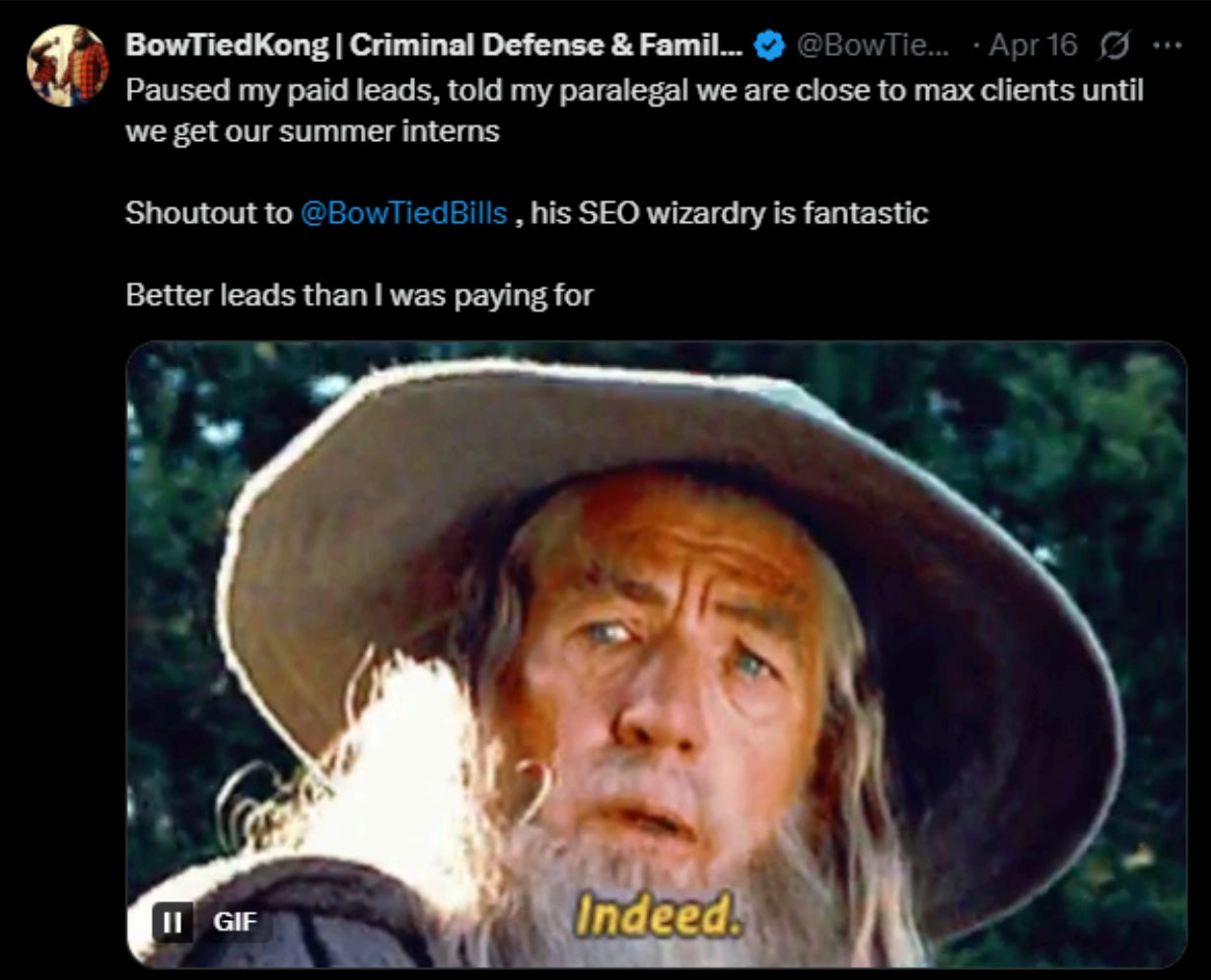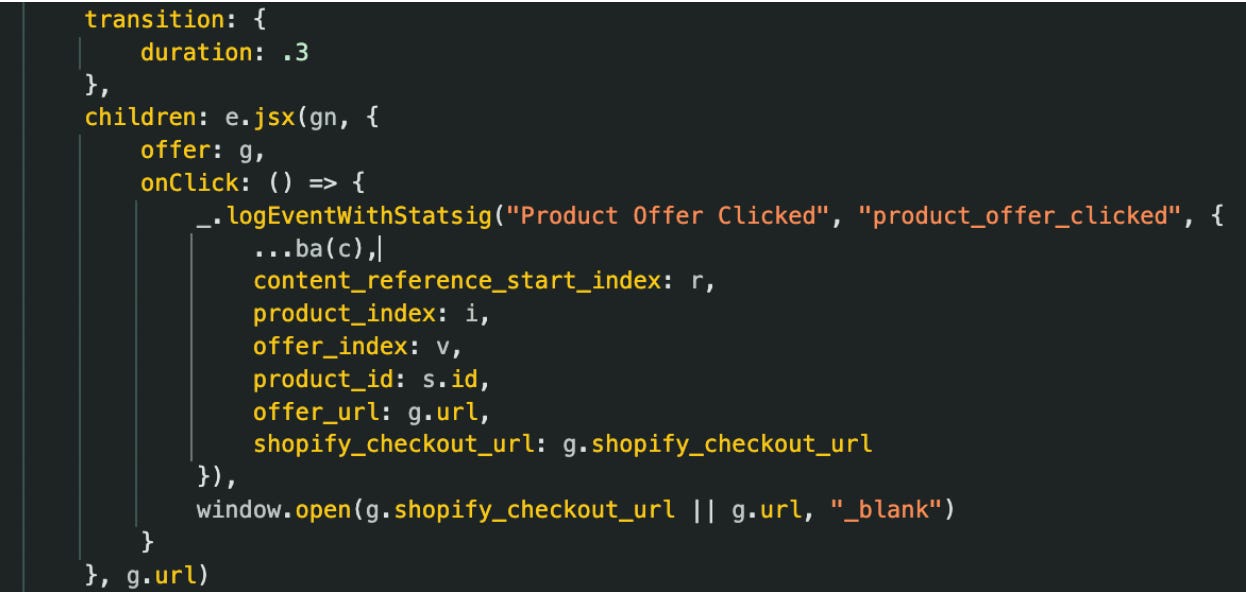FAANG To Wifi $ with BowTiedBills
Level 2 - Value Investor
This is a guest post from a person who went from FAANG to WiFi money.
As usual, all jungle success is built in public. We don’t run the standard everything flows to some celebrity (Grant Cardone etc.). Instead we try to find people with skill/talent, highlight them and let the chips fall. Wide range of people makign 7-figures to people getting their first $1,000 month in WiFi money.
With that out of the way we’ll hand it over to BowTied Bills. This is entirely written by Bills and we have not edited anything except typos and profane language.
FAANG to WiFi $$$
Firstly I want to give a huge shoutout to BowTiedBull. If it wasn’t for them and the Jungle I would still be busting my a** trying to climb the corporate tech ladder. To say this Substack has been life changing would be an understatement.
For those who don’t know me, I’m a former FAANG Software Engineer. Three years ago I was on the fast track to Sr / Staff level. I had the right internships in university, the right job offers post grad, and I was working 60-80 hour weeks on high-visibility projects. I had been passively reading most of the posts on this substack for a few years (especially those related to Crypto) and kept telling myself that “one day I’ll start my own business”.
That day came a lot sooner than expected when my company laid off 10K+ employees in one day.
After pouring months into a massive project, staying up late, working weekends, sacrificing personal time, I woke up one morning unable to log into the company VPN. My manager had been laid off at 5am. A few hours later, I got the same email. Six months' severance and a polite invitation to find another job.
Bull had mentioned a few times that big corporations view you as nothing other than an item on a spreadsheet but it was only in that moment that I truly understood how accurate that statement really was. All those overtime hours, weekends sacrificed, time missed with the family, all of it meant nothing.
After getting laid off I decided that I was going to try my hand at building my own wifi biz. I had a few ideas, paid severance, and time. I spent the next 6 months doing nothing that could be considered even close to remotely productive. I’d sleep when I wanted, never set an alarm clock and outside of that generally just did what I felt like. This surprisingly to me at the time (but obvious in hindsight) got boring and depressing quickly.
After the 6 months were over, tax season rolled around so I went to see my accountant to get my taxes in order. While chatting, he asked if I'd take on a project building a custom application to streamline his practice. He told me he was "sick and tired of responding to stupid requests" from clients. He wanted a central storage system where clients could login anytime to access their files without bothering his staff. I quoted him, he accepted, and I built it.
I figured if I'd built it for one accounting firm, I could do it for others. But when I showed demos, potential clients always wanted custom changes: "Oh that's great but I want XYZ feature changed because my firm does things differently." I'd quote them and they'd balk at the price or say "now isn't the right time." A lot of them expected these customizations for free because they were "only minor requests" in their eyes.
This constant rejection pushed me toward a SAAS product - a templated software with predefined inputs/outputs at a lower cost. I built an AI-powered workflow tool for businesses and went all-in on marketing it: cold calls, cold emails, even hand-delivering flyers with QR codes to local businesses.
I had some success, mainly through cold email, but nowhere near what I needed fast enough.
That’s when I realized it would be better for me to master marketing BEFORE building more products. I read some books, watched some YouTube videos on different marketing strategies, (SEO, Paid Ads, Organic Social Media) how they work, how to implement them etc. But most of that ended up being completely useless.
There is simply no better teacher than rolling up your sleeves and putting in the reps.
I started with paid ads for my SAAS. I failed spectacularly and repeatedly. Sometimes I'd think I had a genius angle, spend money on ads, and end up with $100+ CPM and zero conversions. Slowly though I kept refining my approach, tracked what worked and what didn’t, and the CPMs slowly started to come down and meetings started getting booked.
That’s when I ran into another problem. Approximately 85-90% of the people who would book meetings would no-show and ghost me (despite numerous reminders via Calendly). This caused me many sleepless nights but I didn’t care, I was making progress and learning skills that would be extremely valuable for me in the future once I had mastered them.
To save money, I pivoted to organic growth. I spent countless hours reverse-engineering what makes videos viral - testing different hooks, cuts, jumps, transitions, colors, captions, and background tracks. I eventually found my groove and doubled down hard. I went from 0 to 400K+ followers across three separate Instagram accounts (each targeting completely different niches) within a few months. By month six, I was pulling in roughly 7 million views per month, completely organically.
With all this organic traffic flooding in, I figured I'd try making some money by creating an info product (priced at $19). The first week I did about $500 in sales. Definitely not life changing money but I was hooked, waking up to Gumroad notifications for ebook sales had me higher than a kite. Nothing so far has compared to the dopamine hit I got when getting my first sale.
However, a problem very quickly appeared. You can only promote the same PDF to your followers so many times before they get annoyed and unfollow. I ended the month with roughly $750 in sales before I pulled the plug because I didn’t want to burn the audience I’d spent months carefully growing.
E-com Journey
It was around this time that I had the idea of creating Creatine Gummies. Creatine is the most studied supplement on Earth and is something I've taken every day since I was 17, but I always hated the gritty taste it left when mixed with water. I originally made some at home for myself, shared them with friends and family who loved them, and then realized I could launch a brand with this.
I tested manufacturers from all over the world (Canada, USA, Mexico, China), but most of the samples I received tasted awful or were unable to provide 3rd party testing results for Creatine content. I was also hesitant about going with overseas manufacturers because if something went sideways, it would be a hassle at best and downright impossible at worst to litigate. I doubled down on my search in the USA, got more samples, checked third party testing results, then drove down to inspect the manufacturer that made the best tasting ones. After verifying they were legit I placed my first P.O and Gimme Gummiez was born.
All the branding work - logos, website, pouch design, store setup - was done by a freelancer for around $4K. I chose a woman as the designer because I wanted to sell to women so I figured she'd have better insight into what would appeal to them as opposed to a man. I simply pointed her towards Presleep and Ramp Health's websites and said, "I like these styles, come up with something similar but for Creatine Gummies."
To demand test, I ran polls on my Instagram accounts teasing a new supplement launch and got a lot of people to sign up for my mailing list. This was pretty much the only demand test I did. In hindsight, it would've been better to do a more thorough test outside my own audience, but at the time I was a little too full of myself, thinking "no way this doesn't sell out" given my audience.
This is definitely not the most optimal approach and I do not recommend it to anyone else.
I launched on X and Instagram the same day. I only had a few hundred followers on X at the time, but X drove a significant majority of the revenue upon launch. This side of the internet punches FAR above its weight class compared to the normies on IG.
Throughout this process, both TJ and BowTiedVampDeer's posts (and the guys themselves), were extremely helpful. Having the ability to reach out and ask questions to someone who is ahead of you in the journey is extremely valuable. They helped me streamline a ton of things on the backend regarding compliance, shipping, and dealing with manufacturers.
SEO Scale Up
While preparing for the gummies launch, I kept hustling on the side, offering social media marketing services to businesses and brands. I was able to leverage my success with my own accounts to get my foot in the door for meetings but time and time again potential clients would ask, "Do you do SEO?"
For those of you who don’t know, SEO stands for Search Engine Optimization. The idea is to be at the top of the search results when someone searches Google for a service or product you provide.
The fundamental difference between SEO and Paid Media is that SEO is all about capturing existing demand whereas Paid Media advertising is about demand generation.
I’d worked on search and recommendation systems that are pretty similar to modern search engines at various FAANG companies, so I had a solid understanding of how ranking algorithms operate. Funnily enough, I never thought this experience would be valuable outside of solving algorithmic problems but it ended up giving me insights that most SEO “experts” simply don't have.
To get some case studies going, I reached out to the doctor who did PRP on my shoulder after a jiu-jitsu injury as he was a young(er) guy who wanted to grow his clinic and was open to trying new things to get it done. I pitched him on SEO and he agreed to pay me $200 per lead if I could deliver. The arrangement worked out beautifully - he was able to grow his practice, I got testimonials and referral clients, and I still run his SEO to this day.
Below is a quick table outlining the key differences (I get DM’s quite often asking “Will SEO work for my business? How long will it take? What’s the value?”)
SEO is an investment. When done right, it creates lasting, compounding value for your business. Paid Ads are an expense, once ads stop, the traffic and leads disappear instantly.
If you are planning on launching an ecom store, do NOT start with SEO. Go all in on Paid Ads until you’re profitable and confident the product is a winner. Use SEO as a means of building an inbound revenue generating machine to bring CAC down, and profits up.
Local SEO vs Organic SEO
There’s two main kinds of SEO. Local and Organic. Local SEO refers to when Google displays business profiles for a web result. If you’re a service based business the Map pack will be your bread and butter. When you’re ranked #1 the vast majority (75% +) of your leads will come from there as opposed to organic web rankings.
Organic is when these “Local Map Packs” aren’t triggered. This is what you’d try to optimize for if you were an ecom brand.
If you are a local business or an ecom brand with Product Market Fit (PMF), and you do not have an SEO strategy, you are missing out on potentially hundreds of thousands of dollars per month (depending on your niche).
Here’s some quick math to highlight how much you’re leaving on the table. Open up Google Adwords and search for keywords for your niche. For the sake of this example, let's try out “divorce lawyer nyc”. The main divorce related keyword pulls 6,600 searches/month in NYC.
One of my clients, a divorce lawyer in a smaller city (approx. 750 searches/month), now holds the #1 position on Google (after 4 months of working with me). Here’s how that translated into performance for April:
220 Google Business Profile (GBP) interactions
64 phone call leads
27 form-fill leads from 94 website clicks
That’s a 30 % CTR, a 29 % form-fill rate, and about 2.4 calls per form-fill.
You might look at that CTR and think it seems high, but it's not. In fact, strong organic rankings often outperform paid ads by a large margin when it comes to click-through rate. That might sound counterintuitive at first, but it makes sense when you consider how people browse. Most users instinctively scroll past the ads because they know someone paid to be there. Organic results, on the other hand, feel more earned and that builds implicit trust.
How many times have you searched something on google and then skipped right past the ads and gone to the first non sponsored link? Quite often, I’m willing to bet.
Here’s a super conservative projection for the revenue you can expect if you’re ranked as #1 for “divorce lawyer nyc” (I cut CTR, Form Fill Rate & the Call Multiplier in half):
Total leads: ~326/month
Even at a low (10 %) close rate and an average case value of $5k, that’s roughly:
326 leads × $5,000 × 10 % ≈ $163,000 in new revenue every single month.
Keep in mind, this is a very conservative estimate. I've intentionally halved all the key metrics, and contested divorces are usually north of 20K each.
Your close rate should be much higher because these leads are:
Inbound (they’re actively searching for your services)
Already view you as the expert (You’re #1 on Google - DUH)
That’s the revenue you’re leaving on the table by not owning the top spot. Rerun the numbers on your niche and see how much money you’re leaving behind. Is that something you can afford to be doing?
The biggest limiting factor when you hit number one is usually the sheer volume of work you can take on. (Just ask BowTiedKong)
Of course, ranking in NYC is going to be much more competitive relative to a smaller city somewhere in the midwest due to increased competition. But the principle doesn’t change: if you’re a business or an ecom brand that invests in SEO, there’s a lot of money to be made.
Running a business in 2025 requires different strategies than running a business in 2005 did. You can no longer “do good work and wait for referrals”.
The Future Of SEO & Ecom
Looking to the future it’s clear that SEO will play a huge role as users shift from Google to ChatGPT / other LLM’s. Latest leaks point towards a direct Shopify x ChatGPT integration. In GPT’s public web bundle you can spot flags like “shopify_checkout_url” along with various product related fields. This implies that there will be a native purchase flow within GPT so users can browse and purchase items without ever leaving.
We can already see bits and pieces of this being implemented in GPT (with others likely to follow suit quickly).
For Example:
If you ask GPT for the top fluoride free toothpaste, it just searches the web in the background, grabs what’s ranking at the top organically (It pains me to not see NOBS here) and serves it back as a neat product carousel. The only pieces missing are the “Buy Now” buttons and real time price tags, which judging by the latest web bundle mentioned above are on the way soon.
There's real value in owning your traffic. For local businesses, it gives you a predictable stream of high-intent inbound leads. For ecom, it gets you in front of buyers who are searching for your products or searching for the problems for which your product is the solution. It builds a long-term acquisition engine that works 24/7, not just when your ad spend is turned on. You can leverage this to get a higher multiple when you look to exit your business.
In Conclusion
When I first joined this side of the internet, I had no idea where I'd end up. There were countless times I wanted to give up, often multiple times a day. I often felt like I was falling behind and was a complete failure. But pushing through those moments is what separates those who make it from those who don't. By God’s grace I didn’t quit.
The voice in my head kept saying "If VampDeer can do it, if TJ can do it, if Gator and Fawn can do it and they’ve all (alongside countless others) shared detailed guides on how they did it, then I’m redacted if I can’t do it too.”
I was inspired to keep going by watching others who had walked the path before me. I appreciate each and every one of them for sharing their journey, the challenges they faced and the lessons they learned. This substack has saved me countless years of iterating on my own.
The most important thing is to just start building your own path to Wifi $. You’ll wish you started sooner. It doesn’t really matter what you do because your first few attempts will likely fail and that’s okay. You just need to put one foot in front of the other and the path will become clear over time.
The quality of people I’ve met through the Jungle is light years ahead of the people I’d typically encounter in my everyday life. I have more in common and enjoy talking to a bunch of cartoon animals more than friends I’ve known for years. Everyone in the jungle is rooting for you to win, without jealousy.
The information you're searching for and the connections to help guide you are all here, there are no excuses anymore.
If you run a business (local or ecom) and want help growing it through SEO, DM me on X at bowtiedbills. I've got space for a handful of new clients before I hit capacity again. - Bills
Disclaimer: None of this is to be deemed legal or financial advice of any kind. These are *opinions* written by an anonymous group of Ex-Wall Street Tech Bankers and software engineers who moved into affiliate marketing and e-commerce.
Old Books: Are available by clicking here for paid subs. Don’t support scammers selling our old stuff
Crypto: The DeFi Team built a full course on crypto that will get you up to speed (Click Here)
Crypto Taxes: We have a suggested Tax Partner and 25% discount code, for information see this post. Crypto Tax Calculator (same as always). You can access CTC HERE and get 25% off your first year for being a BTB subscriber. Yes, this also operates as a ref link. (BTB25) the discount is at no cost to you.
Security: Our official views on how to store Crypto correctly (Click Here)
Social Media: Check out our Instagram in case we get banned for lifestyle type stuff. Twitter will be for money



